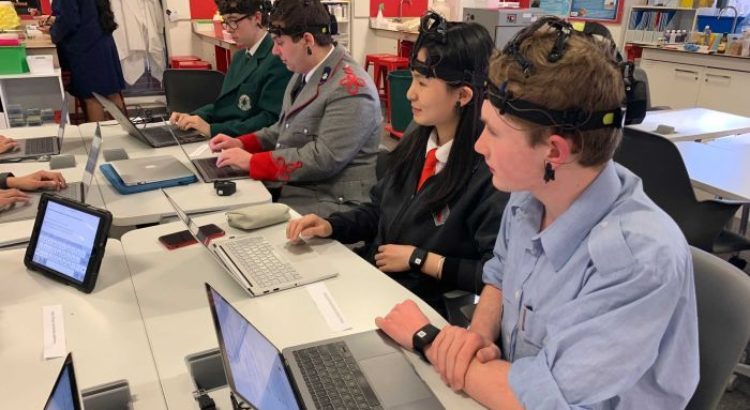Oceania/ Australia/ 03.09.2019/ Source: www.abc.net.au.
For students prone to daydreaming during lessons — you’d better start paying attention.
In this science class, the kids are the experiment and every eyeball roll and side comment can now be detected on a graph.
Key points:
- Surveys show Australian students are increasingly falling behind in maths and science
- EEG headsets will allow researchers to measure students’ attention and engagement
- Teachers hope the research project will help improve their lesson planning
Researchers from the University of New South Wales (UNSW) are trying to understand Australia’s declining performance in science and are using technology to measure students’ engagement in the classroom.
As part of a study involving more than 500 students from years 7 to 10, from up to eight schools in NSW, biometric watches and headsets are being connected to students to measure brain signals, heart rate and skin temperature while they perform science tasks and exams in a classroom setting.
Psychology Professor Joel Pearson from UNSW said more advanced and cheaper technology meant for the first time neuroscience and education could be brought together for research.
«This EEG [electroencephalogram] technology now is being made mobile so for the first time in history really, we can come out to locations like this and measure brain activity,» he said.
«Before we’d have to bring students one-by-one into the lab. It’s a very different setting, it’s not naturalistic.
«Now we can do it here in a real classroom with real students interacting with each other.»
 PHOTO: The King’s School’s Roger Kennett (L) and Professor Joel Pearson check the results. (ABC News: Antonette Collins)
PHOTO: The King’s School’s Roger Kennett (L) and Professor Joel Pearson check the results. (ABC News: Antonette Collins)Professor Pearson said new technologies allowed researchers to objectively measure engagement or boredom «much like a blood test» provides an accurate, objective result.
Tony George, headmaster of The King’s School, which is a partner in the ARC-funded project, said the research would also help teachers to plan their lessons.
«Teachers know when they look upon a classroom those kids that suddenly come alive,» he said.
«Now if we can better understand what it is that we’re doing within that environment that brings that mind alive we can probably do it more often and more consistently.»
Year 9 student Robert Napoli said he wanted to find new ways to improve his learning.
«To be able to learn to the best of our ability is something we all strive for, whether that be studying more effectively to help students preparing for an exam,» he said.
Professor of Educational Psychology, Andrew Martin said students would also fill in questionnaires with the goal to match up the science with how they felt about their studies.
Several surveys showed Australian students were increasingly falling behind those in other countries when it came to achievement in maths and science.
It’s hoped the data collected from this study will also provide students with more information about how best to cope under the intense pressure which comes with exams.
Source of the notice: https://www.abc.net.au/news/2019-08-31/scientists-use-tech-to-measure-students-engagement-in-science/11452514







 Users Today : 44
Users Today : 44 Total Users : 35459950
Total Users : 35459950 Views Today : 50
Views Today : 50 Total views : 3418515
Total views : 3418515